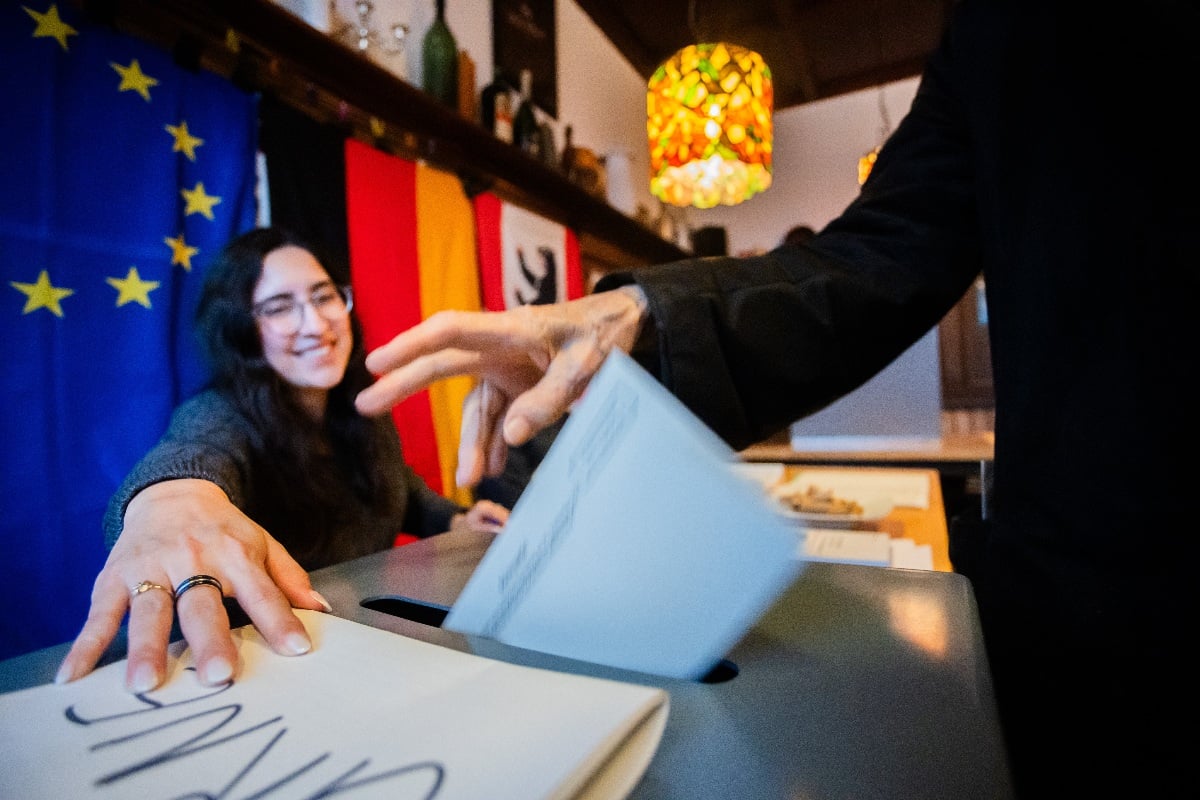When are early elections happening?
The vote is scheduled to take place on February 23rd 2025, following a no-confidence motion in Chancellor Olaf Scholz's government set for December 16th and the dissolution of the current Bundestag - most likely on December 27th.
Who can vote?
To vote in German federal elections, you need to be a German citizen aged 18 years or over on election day. Although the voting age was reduced to 16 in time for the last European elections in Germany, it has not been lowered for the Bundestag.
You also need to have been resident in Germany for at least three months of your life after you turned 14. German citizens who leave Germany retain their right to vote in federal elections for 25 years.
Finally, you need to be on the electoral register.
READ ALSO: What happens next as Germany heads for snap elections?
How do I make sure I'm on the electoral register?
Unlike in the US or Canada, where voters often need to register themselves to vote, German voter registration is typically automatic when you register your address and get your Anmeldung.
As such, you need to have a registered German address in order to vote. Furthermore, new German citizens should be advised that your local authority needs to know that you are, in fact, German now.
Most local authorities will automatically update your nationality when your citizenship caseworker approves your citizenship application, without you having to do anything. That's how you can then apply for your first passport and ID card. If you have these documents already, your local authority definitely already knows that you're German, as these document applications are handled through appointments at the Bürgeramt. If that's the case, you don't need to do anything else. You should be on the electoral register.
In the worst case scenario, if you're unsure whether your local authority did in fact record your new German nationality correctly, you can make an Anmeldung appointment at your Bürgeramt and be sure to bring your naturalisation certificate and a piece of ID with you. You can probably then apply for our German ID and passport at the same time.
Germans who have left Germany will have their ballots counted in the last German constituency in which they were a resident. If you move close to the time of election day, you may end up having to vote in your last constituency rather than the one where you currently live.
READ ALSO: What documents should I get after obtaining German citizenship?
What happens then?
For a while, you wait - and make sure your name is on your mailbox.
That's because your voter information card (Wahlschein) will appear in the mail no later than 21 days before the election (February 2nd if the estimated election date holds).
Check it carefully to make sure all information is accurate. The Wahlschein will have both information for you about how to vote by mail and where to vote in person.
If any information is incorrect or you think you've been mistakenly left off the electoral register - perhaps because you didn't get your Wahlschein - you have only a short time to act. In that event, you need to lodge a complaint between the 20th day before the election and the 16th.
The electoral register is typically closed three days before a German federal election. To vote, you'll typically need to be on it by then - although clear incompleteness in the electoral register can be fixed right up until voting starts (8:00 am the Sunday of the election).
READ ALSO: 'I would have loved to vote': How foreigners in Germany feel about early elections

How do I vote?
If you want to vote in person on the day of the election, show up at the polling station indicated on your Wahlschein with both the Wahlschein and a piece of valid picture ID. Remember that you have two votes - one for a direct candidate and one for a party list. Germans can - and many do - split their votes, voting for a candidate for one party for a direct mandate and voting for a different party list. Obviously, you can decide to go for the same party on both votes too.
Polling stations in Germany are open from 8:00 am to 6:00 pm on election day, which in Germany always occurs on a Sunday.
If you want to vote by mail (Briefwahl), there are two ways of doing it. Firstly, your Wahlschein will come in the mail with an application form to vote by mail. You can send this in to request a ballot be mailed to you. A ballot will come back to you with a form you need to fill out and two envelopes. Make sure you follow the instructions there and mail your vote in. Postage is free for these within Germany but it needs to be received by 6:00 pm on election day.
You can also take your Wahlschein and mail ballot application to a postal voting station (Briefwahlstelle) before the election. Every local authority maintains at least one of these - often at a city hall. Your Wahlschein will likely list its address and opening times. You can also deposit your vote there.
READ ALSO: Will Germany's dual citizenship law remain after new elections?
What next?
That's up to you!
You might head to a watch party or just go about your day. Exit polls typically drop in German elections when voting closes at 6:00 pm on election day, with counting going into the evening.
Coalition negotiations then start, and often take weeks or even months before a new governing coalition is negotiated.

Comments (1)